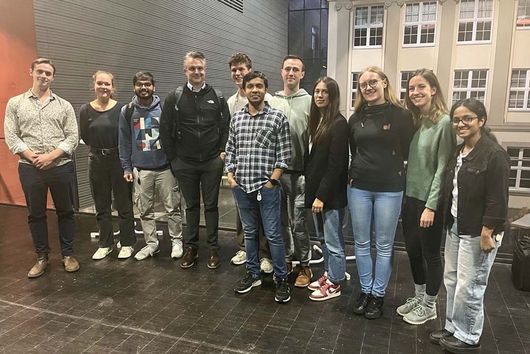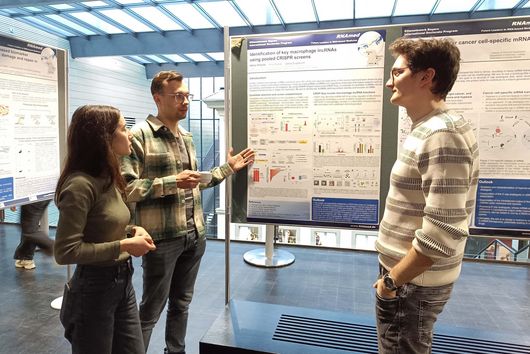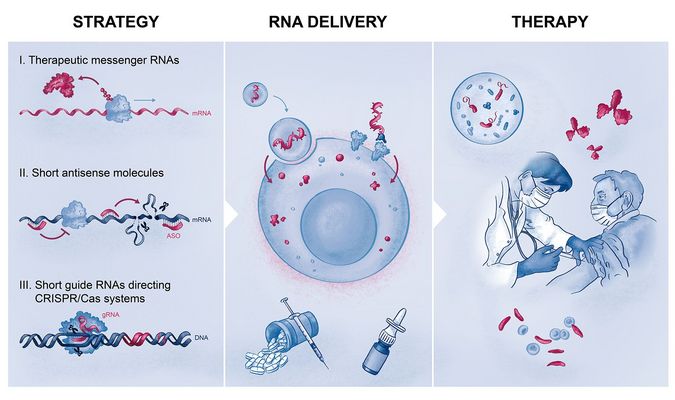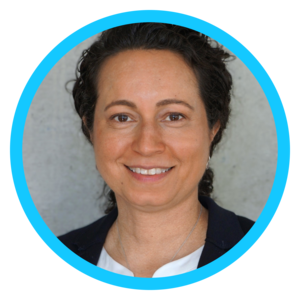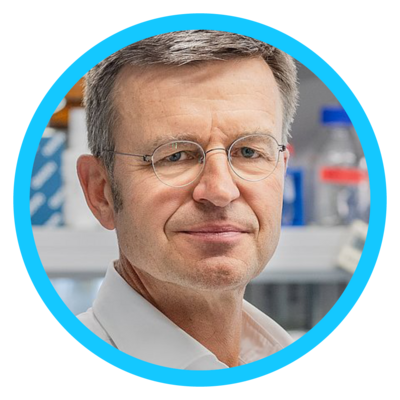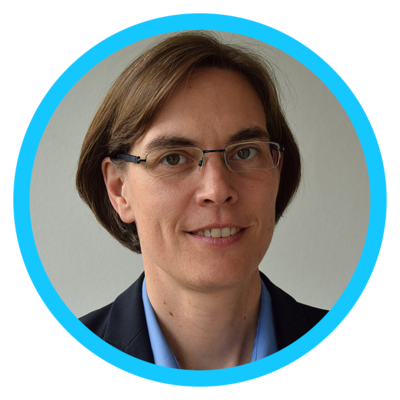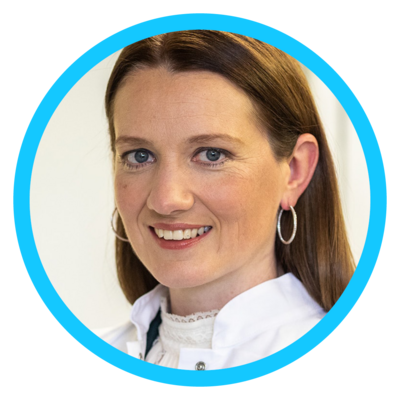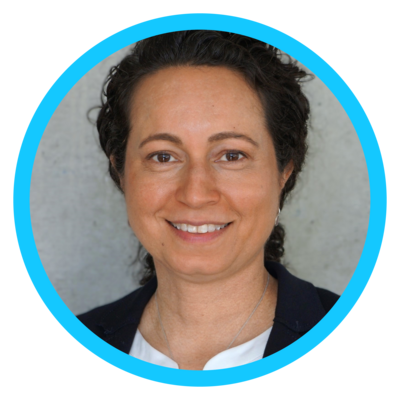
Graduate Program RNAmed
News: New call opens in February/March 2026
11 fully funded PhD positions in RNA-based medicine
News
About the program
The graduate program RNAmed - Future Leaders in RNA-based Medicine, which is financed by the Elite Network Bavaria (Germany), offers 20 PhD positions (4 years) in Würzburg, Munich or Regensburg. The program started in December 2022.
RNA-based therapeutics have emerged in recent years for several diseases. With the exceptionally rapid development of RNA vaccines to counteract the SARS-CoV-2 pandemic it has become increasingly clear that RNA is on the verge of becoming another major molecule class for the fields of diagnostics, prevention and treatment of diseases.
RNAmed takes a holistic approach to endow doctoral students with the necessary knowledge and skills in the fast-growing area of RNA-based medicine. We are currently training a group of international PhD students to work in this exciting area of research and to drive precision medicine as well as targeted molecular therapies forward. An international spirit, active networking, extracurricular activities and pharmaceutical translation are main features of RNAmed.
International Conferences, Summer schools, internships
Our PhD students will have the unique opportunity to undertake cutting-edge research combining the aforementioned expertise. An interdisciplinary committee of international scientists will guide and support PhD candidates throughout their PhD. Structured mentoring and training including summer schools, industry internships, hard and soft skill workshops and opportunities to present their work at international conferences will prepare students for careers as scientists in academia or industry, as entrepreneurs or as policy makers in the broader area of RNA-based medicine.
A panel of experts as supervisors
RNAmed represents a diverse consortium of scientists in the fields of RNA modification and delivery, CRISPR-Cas, microRNAs, noncoding RNA, RNA biology of infections, and RNA chemistry.
Jörg Vogel | Program Speaker
Molecular Principles of RNA: Jörg Vogel, Würzburg (Program Speaker)
Jörg Vogel is a microbiologist, who is known for his scientific contributions within the field of RNA biology.
Jörg Vogel studied biochemistry at Humboldt University, Berlin, and at Imperial College, London, UK. In 1999, he received his PhD from Humboldt University with a thesis on Group II intron splicing. He spent his postdoctoral years at Uppsala University, Sweden (2000-2001) and as an EMBO fellow at the Hebrew University, Jerusalem, Israel (2002-2003) before he started an independent research group at the Max Planck Institute for Infection Biology in Berlin (2004-2010). He was appointed full professor and director of the Institute for Molecular Infection Biology at the University of Würzburg six years later. In 2017, he became founding director of the Helmholtz Institute for RNA-based Infection Research, the first federal institute worldwide to work at the interface of RNA and infections.
Jörg Vogel’s lab strives to understand the full spectrum of noncoding RNA and RNA-binding proteins in bacterial pathogens and in members of the human microbiome. He develops new RNA-seq based techniques to rapidly capture the RNA world of any microbe, ideally at the level of single cells, and understand how and why bacteria use RNA as a regulator as they infect humans. The lab asks basic mechanistic questions of RNA Biology but also works on RNA-centric manipulations of the microbiota.
Commensurate with his scientific contributions, Jörg Vogel received a number of awards including the VAAM Research Award (2010), the DGHM Senior Scientist Award (2011), the Leibniz award of the German Research Foundation (DFG) in 2017, and the Feldberg Prize in 2018. He is an elected member of EMBO (European Molecular Biology Organisation), the American Academy of Microbiology, the European Academy of Microbiology, as well as the German National Academy of Sciences (Leopoldina), and he became President of the European Academy of Microbiology (EAM) in 2021.
RNAmed will benefit from Jörg Vogel’s vast expertise at the interface of RNA biology and infection research and also from his international network. Students will appreciate the timeliness of RNA-based infection research and the immense potential for future applications.
Thomas Carell
RNA analytics & modification: Thomas Carell, Munich
Thomas Carell is a chemist. His work on DNA repair and epigenetics has great potential for cancer therapy. In addition, his research on the origins of life is central for understanding the organization of living matter. He works in an interdisciplinary manner, spanning organic chemistry, biology and medicine.
Thomas Carell’s academic career in chemistry began at the Universities of Münster and Heidelberg. In 1993, he obtained his doctorate with Prof. H. A. Staab at the Max-Planck Institute of Medical Research. After postdoctoral training with Prof. J. Rebek at MIT (Cambridge, USA) from 1993-1995, he moved to ETH Zürich (Switzerland) to work with Prof F. Diederich in order to start his independent research. He obtained his habilitation in 1999. In 2000, he accepted a full professor position for Organic Chemistry at the Philipps-Universität in Marburg (Germany) and in 2004, he moved to the Ludwig-Maximilians-Universität (LMU) in Munich (Germany) where he is heading a research group in chemical biology focused to analyze the chemistry of epigenetic programming in DNA and RNA.
Thomas Carell is a member of the German National Academy Leopoldina and of the Berlin-Brandenburgische Academy of Arts and Sciences. He is the recipient of the Cross of Merit from the Federal Republic of Germany and since 2019 member of the supervisory board of BASF SE. He has also shown as an entrepreneur as he co-founded baseclick GmbH together with BASF SE in 2008. He is furthermore speaker of SFB1309 (Chemical Biology of Epigenetic Control). Thomas Carell is committed to provide his wealth of expertise in the field of RNA modifications to the RNAmed program.
Selim Corbacioglu

Prof. Dr. Selim Corbacioglu | Photo © private
Clinical RNA research: Selim Corbacioglu, Regensburg
Selim Corbacioglu is a clinician. After his studies he spent time as a research fellow working in the field of pediatric oncology and hematology at the University of Hannover Medical School. In order to apply his knowledge in the aforementioned fields, he went abroad and served as a resident physician in New York City from 1994-1997. He went on to become a fellow at the renowned Memorial Sloan Kettering Cancer Center, while further focusing on oncological and hematological disorders in children and adolescents. After a two-year stint in Zürich, Selim Corbacioglu was appointed Assistant Professor in the Department of Hematology, Oncology and Stem Cell Transplantation at the University Children’s Hospital in Ulm in 2002. Since 2010 he chairs the Department of Pediatric Hematology, Oncology and Stem Cell Transplantation where he continues his work on hematological disorders in children and young adults.
Apart from his role as a practicing pediatrician, Selim Corbacioglu is an expert in the field of gene therapy. He has and continues to oversee clinical studies involving the “genetic scissors” CRISPR/Cas, which have shown promising results in rare diseases such as Sickle Cell Anemia. Within RNAmed Selim Corbacioglu will provide his expertise at the interface of science and the clinic. His input will be most valuable when it comes to moving a drug from the bench to the bedside.
Stefan Engelhardt
Therapeutic small RNAs: Stefan Engelhardt, Munich
Stefan Engelhardt is a clinician scientist, who conducts research in the field of noncoding RNA in the cardiovascular system. Stefan Engelhardt studied medicine at the universities of Regensburg, Munich and Harvard. After his MD work at the Max Planck Institute of Biochemistry and his PhD and postdoc at the University of Würzburg, he headed a junior research group at the DFG Center for Experimental Biomedicine (Rudolf Virchow Center). He was appointed professor of clinical pharmacology (W2) at the University of Würzburg, before being recruited to the Chair of Pharmacology and Toxicology at the TUM in 2008. He founded the Munich Heart Alliance, the Munich site of the German Centre for Cardiovascular Research (DZHK) and served as its speaker from 2011-2020.
Within RNAmed Stefan Engelhardt will provide his vast expertise at the interface of RNA biology and disease. Students will benefit both from his scientific knowledge on noncoding RNA and his experience in the field of translational medicine.
Dina Grohmann
CRISPR/Cas-Systems: Dina Grohmann, Regensburg
Dina Grohmann integrates microbiology, biochemistry and biophysics to unravel the molecular mechanisms of transcription, the mode of action of CRISPR/Cas system and the function of eukaryotic and prokaryotic Argonaute proteins.
After her studies in Biology at the Heinrich-Heine-University in Düsseldorf, she moved to the Max Planck Institute for Molecular Physiology in Dortmund for her PhD studies and received her PhD degree from Heinrich Heine University in 2006. For her postdoctoral work she joined the University College London (2007 and 2011) and was a visiting researcher at Rutgers University in the USA in 2009. In 2011 she became a junior group leader at the Institute for Physical and Theoretical Chemistry at the Technical University of Braunschweig and started her own research group.
In 2015 Dina Grohmann was appointed as Associate Professor and since 2019 holds a full professorship in Microbiology at the University of Regensburg. Additionally, Dina Grohmann is Head of the Archaea Centre in Regensburg, which reflects yet another focus of her work, namely i) to understand regulatory networks in Archaea, ii) to isolate and charaterise new archaeal species and iii) to exploite the versatility of Archaea for biotechnlogical applications. In the latter field she has already excelled as an entrepreneur by driving the foundation of Microbify GmbH, a company that aims to use methanogenic archaea for the production of methane on an industrial scale. RNAmed students will therefore not only benefit from Dina Grohmann’s expertise as an entrepreneur. In addition, she will provide her vast experience in the field of CRISPR/Cas systems, which in turn represent a very promising and novel class of RNA-based therapeutics.
Claudia Höbartner
RNA analytics & modification: Claudia Höbartner, Würzburg
Claudia Höbartner is a chemist. She studied chemistry in Vienna and Zürich, and earned a PhD degree from the Leopold Franzens University Innsbruck (Austria) in 2004. After postdoctoral research at the University of Illinois at Urbana-Champaign (UIUC), supported by an Erwin Schrödinger fellowship from the Austrian Science Fund (FWF), she was funded by the Hertha Firnberg career development program of the FWF.
In 2008 she joined the Max Planck Institute for Biophysical Chemistry in Göttingen as a Max Planck research group leader. In 2014 she was appointed professor at the Faculty of Chemistry at Georg August University Göttingen.
Since July 2017, she is a professor at the Institute of Organic Chemistry at the University of Würzburg. Her major research interests include the biomolecular chemistry of natural nucleic acid modifications and of synthetic functional nucleic acids, with a particular focus on catalytic RNA and DNA (ribozymes and deoxyribozymes) as well as aptamers. Since 2016 her research is funded by an ERC Consolidator Grant.
Claudia Höbartner will provide her knowledge to RNAmed when it comes to RNA modifications, which are a prerequisite for making these molecules biologically available. Her core expertise lies within the fields of RNA synthesis, ligation, labeling and modification, which are critical to several of the projects of this proposal.
Lorenz Meinel
Drug delivery & formulation: Lorenz Meinel, Würzburg
Lorenz Meinel is a pharmaceutical scientist specializing on the formulation of poorly water soluble compounds and bioresponsive drug delivery systems.
He studied pharmacy at the University of Würzburg from 1993 to 1998 and then moved to the Swiss Federal Institute of Technology (ETH) in Zurich as a doctoral student (Dr. sc. nat. in 2002). From 2002 to 2004, he was a postdoctoral research associate in Cambridge, Massachusetts, before becoming a doctoral student in Frankfurt am Main (Dr. rer. med) in 2005. From 2005 to 2010 he had a managing position at the drug manufacturer Novartis in Basel being responsible for global programs in all clinical development phases with a special focus on translational medicine in musculoskeletal diseases. In 2007 he received his habilitation in Zurich. In 2010, he was appointed Chair of Pharmaceutical Technology at the Institute of Pharmacy and Food Chemistry at the University of Würzburg.
Given Lorenz Meinel’s vast expertise in drug development with a particular focus of translating drug substances into first in man studies as well as formulation and delivery in both, academia and industry, he will be an important asset for RNAmed. He will provide crucial applied knowledge on how to package, deliver, and profile novel RNA-based therapeutics in light of pre-clinical development and translation.
Gunter Meister
Molecular principles of RNA: Gunter Meister, Regensburg
Gunter Meister is an RNA biologist, who focuses on non-coding RNA pathways in mammalian cells, which includes work on RNA interference, human Argonaute proteins and profiling of non-coding RNAs in cancer.
Following a PhD in splicing regulation from the Max Planck Institute of Biochemistry and the Ludwig Maximilians University in Munich he joined the lab of Tom Tuschl at the Rockefeller University in New York, USA, as a postdoc and started to work on mechanistic aspects of small RNA-guided gene regulation. In 2005, he started his independent lab at the Max Planck Institute of Biochemistry. His lab contributed to our current understanding of the mechanism of microRNA regulation. In 2009, he was appointed to his current position as professor and chair for Biochemistry at the University of Regensburg, where his research focus is the biochemical analysis of small RNA-guided gene silencing pathways, long non-coding RNAs, RNA-binding proteins and RNA modifications in mammals. Apart from the science, he also serves the University as Dean of the Faculty of Biology and Preclinical Medicine.
Gunter Meister received the Research Award of the Peter and Traudl Engelhorn foundation, the Schering Young Investigator Award as well as Starting and Consolidator Grants of the European Research Council (ERC).
Gunter Meister’s expertise in basic RNA biology and applied technologies in human diseases such as cancer will be instrumental for RNAmed as it will allow students to identify clinically relevant target molecules for various indications.
Olivia Merkel
Drug delivery & formulation: Olivia Merkel, Munich
Olivia Merkel is a pharmacist with a keen interest in RNA delivery. She has developed novel ways to deliver biologically active RNA molecules into lymphocytes, macrophages in order to treat lung and inflammatory diseases as well as cancer.
In 2005 Olivia Merkel became a Registered Pharmacist after her studies. In 2006, she received a Master’s in Pharmaceutical Technology from Martin-Luther-Universität Halle-Wittenberg, and a PhD in Pharmaceutical Technology from Philipps-Universität Marburg in 2009. After postdoctoral work in Marburg, she was appointed Assistant Professor of Pharmaceutics at Wayne State University, Detroit (USA) between 2011 and 2017. There, she was also a Scientific Member of the Molecular Therapeutics Program and Faculty in the Cancer Biology Graduate Program at Barbara Ann Karmanos Cancer Institute in Detroit. Her current appointment is as a Professor of Drug Delivery in the Department of Pharmacy at LMU Munich (since 2015).
Olivia Merkel has received several awards, including the PHOENIX Pharmacy Award, Princess-Therese of Bavaria Award, an ERC Starting Grant, the Galenus Foundation Technology Award, the Young Investigator Award from the College of Pharmacy at Wayne State, the Young Pharmaceutical Investigator Award granted by the European Federation for Pharmaceutical Science, the Carl-Wilhelm-Scheele-Award by the German Pharmaceutical Society and the award for best PhD thesis at Philipps-Universität Marburg. From 2020 until 2021, she was the President of the Controlled Release Society German Local Chapter and has been the Chair of the CRS Focus Group Transdermal and Mucosal Delivery since 2020.
Given Olivia Merkel’s extensive experience in RNA delivery, she will be of immense importance for RNAmed, as students will appreciate what it needs to make a compound available in vivo once in vitro data has been gathered.
Alessandra Moretti
CRISPR/Cas-Systems: Alessandra Moretti, Munich
Alessandra Moretti is an expert in regenerative medicine in the context of cardiovascular diseases.
She studied chemistry and pharmacy in Padua and received her PhD from the same university in 1997. After four years of research at the University of California, San Diego and the Massachusetts General Hospital of Harvard Medical School, she became head of the Department of Molecular Cardiology at the Klinikum rechts der Isar of the Technical University of Munich in 2006. In 2015, she was appointed Professor of Regenerative Medicine of Cardiovascular Diseases at TU München.
Alessandra Moretti conducts research in stem cell biology and cardiovascular development. Her research focuses on i) cardiovascular progenitor cells and their specification into different cell types of the heart, ii) cellular plasticity, and iii) human induced pluripotent stem cells for molecular characterization of cardiovascular disease patterns and regenerative therapeutic approaches. Importantly, she uses RNA-based genome editing tools such as CRISPR/Cas systems to ultimately restore the proper function of diseased hearts and to regenerate cardiac musle cells after injury. Her research therefore clearly links to clinical applications in the field of cardiovascular diseases. Her expertise and insights will therefore be very valuable for RNAmed students.
Cynthia Sharma
Molecular principles of RNA: Cynthia Sharma, Würzburg
Cynthia Sharma employs microbiology, RNA biology and biochemistry approaches to study fundamental aspects of gene regulation and virulence control in bacterial pathogens as well as of prokaryotic RNA-based CRISPR-Cas immune systems.
After her studies in Biology at the Heinrich-Heine-University in Düsseldorf, Cynthia Sharma moved to the Max Planck Institute for Molecular Infection Biology in Berlin (MPI-IB) for her PhD studies and received her PhD degree from the University of Bielefeld in 2009. After a short postdoctoral work at the MPI-IB, she was a visiting researcher at the National Institutes of Health in Bethesda, USA, in 2010. In 2010 she started her own research group as a young investigator group leader at the Research Center for Infectious Diseases (ZINF) at the University of Würzburg (JMU). In 2016 Cynthia Sharma was appointed as Interim Chair of the newly founded Chair of Molecular Infection Biology II at JMU and since 2017 she is a full professor (W3) at the Institute for Molecular Infection Biology in Würzburg. Since 2018, Cynthia Sharma is the spokesperson of the ZINF in Würzburg.
To explore mechanisms and functions of RNA-protein complexes, small RNAs and small proteins in bacterial pathogens, the group of Cynthia Sharma employs diverse deep sequencing approaches, microbiology, genetics and RNA biology and biochemistry methods. Moreover, her lab has been establishing 3D infection models based on tissue engineering to study host-pathogen interactions. In addition, the Sharma lab has established diverse genetic and molecular biology tools to study the CRISPR-Cas9 system of Campylobacter jejuni and recently translated their fundamental discoveries in C. jejuni into a new multiplexable CRISPR diagnostics platform. Cynthia Sharma will contribute to RNAmed and the training of PhD students with her broad experience in bacterial RNA biology, CRISPR-Cas mechanisms and functions as well as deep sequencing approaches.
Nina Ripin (associated junior group)

Photo: © Nina Ripin
Principles and Properties of Ribonucleoprotein Granules: Nina Ripin, Regensburg
Nina Ripin applies interdisciplinary approaches to investigate the properties, function, and disease relevance of stress-induced ribonucleoprotein (RNP) granules.
She studied Biochemistry at Goethe University Frankfurt, followed by a PhD in Molecular Biology and Biophysics at ETH Zurich, where she focused on the structural and functional characterization of RNA-binding proteins. As a postdoctoral researcher in Roy Parker’s lab at the University of Colorado Boulder, she explored the role of RNA-binding proteins—particularly RNA chaperones—in the assembly and disassembly of stress granules.
In 2025, she was awarded funding from the Elite Network of Bavaria to establish her junior research group at the University of Regensburg, affiliated with the RNAmed program. Her group investigates three key areas: (1) RNA condensation and aggregation in RNP granules, (2) regulatory RNA-binding proteins or RNA chaperones, and (3) the role of RNP granules in the integrated stress response.
Within RNAmed, Nina Ripin contributes expertise on the biophysical mechanisms of protein and RNA condensation and its potential implications for RNA-based therapeutics.
What we offer
The future of medicine
RNA therapeutics have the potential to revolutionize modern medicine. RNAmed takes a holistic approach to providing graduate students with the knowledge and skills necessary to launch a career in the rapidly growing field of RNA-based medicine.
Group of world-leading PIs
RNAmed boasts a group of top PIs who cover basic, translational and clinical research.
Highly interdisciplinary research
We will look at RNA from a biological, chemical, pharmaceutical and clinical point of view.
International summer schools
In the first year of your PhD, we will send you to one of the renowned summer schools in the field.
Industry internships
We have strong ties to several biotech and pharmaceutical companies and you will have the opportunity to work there for some time in order to gather first-hand industrial experience.
Research stays abroad
RNAmed provides funds for its students to carry out research in international partner laboratories or to attend important conferences.
Insights into intellectual property, ethics and regulatory affairs
Not only will RNAmed students carry out top-notch research; we will also train them in complementary disciplines such as legal affairs, intellectual property and ethics.
Contact

The Free State of Bavaria is funding the graduate program RNAmed—Future Leaders in RNA-based Medicine as part of its Elite Network initiative.

Follow us
Keep track of the latest news, jobs, stories, and developments at the HIRI.

